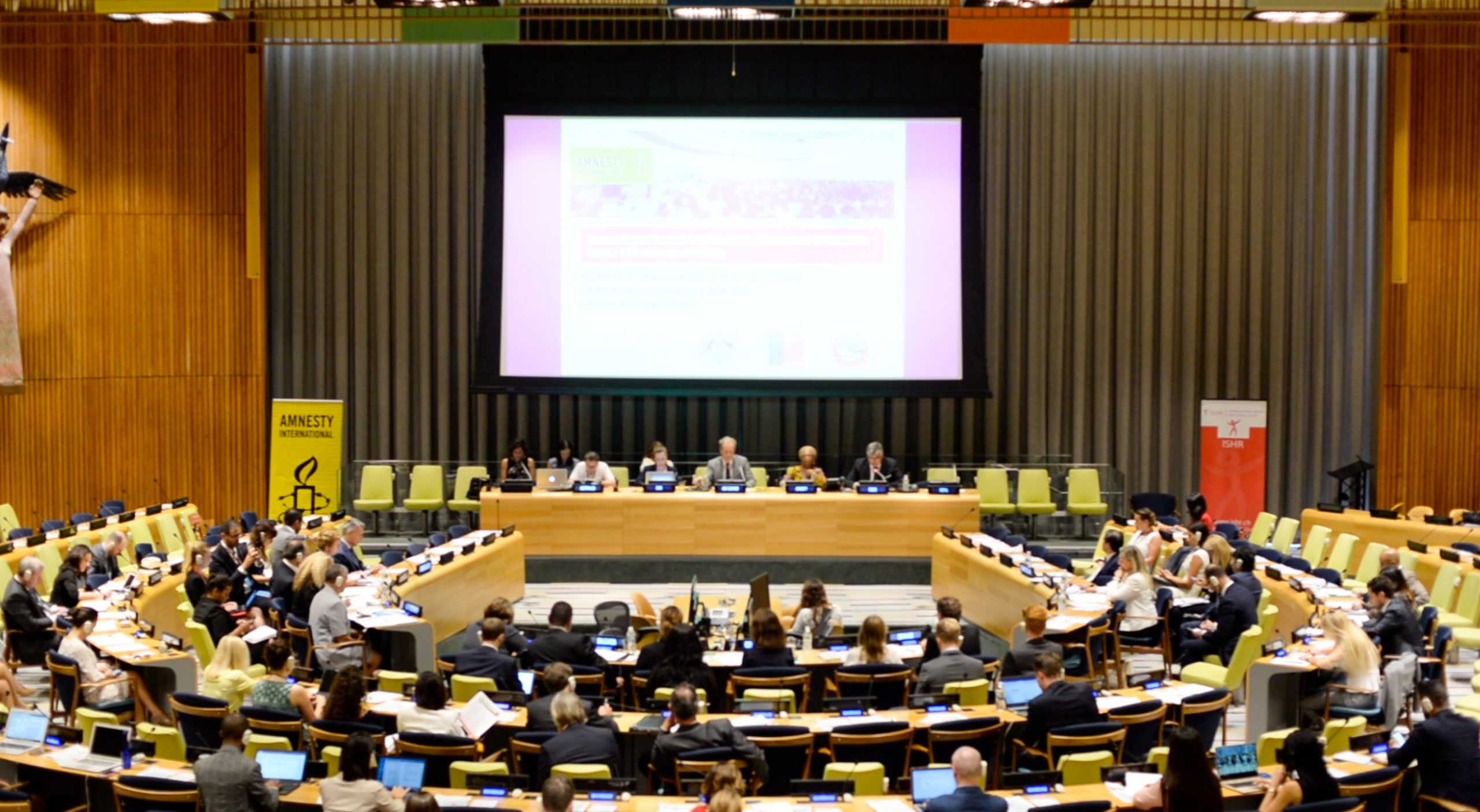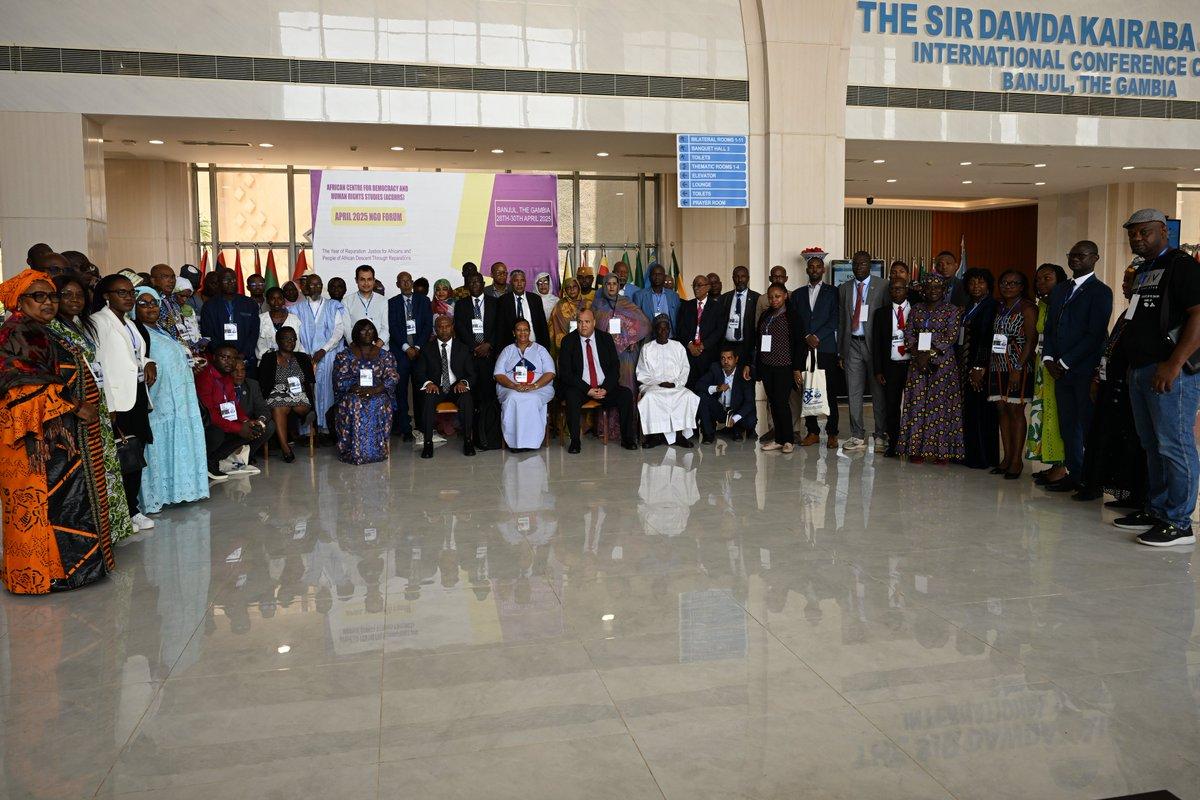
Egypt: Reform unjust vice laws, guarantee open civic space
During Egypt's UPR adoption at HRC59, Nora Noralla delivered a joint statement on behalf of ISHR, Cairo 52 and Middle East Democracy Center. Watch and read the full statement below.
Photo Credit: ISHR

Last week in New York and Geneva, nine candidate States publically spoke to their pledges as an incoming Human Rights Council member for 2019 – 2021, they also faced questions on pressing human rights issues.
Dialogue between civil society and States is instrumental for the advancement of human rights. The Pledging Events, organised each year by ISHR and Amnesty International, provide a critical opportunity for civil society to directly and constructively engage with candidate States for the Human Rights Council, the chief UN body addressing human rights violations.
The events aim to enhance transparency and accountability in Human Rights Council elections and improve adherence to Council membership standards. Toward these goals, candidate States were asked questions from the audience and Twitter using the hashtag #HRCPledging.
Eight candidate States participated in both events—Austria, Argentina, Bahamas, Bulgaria, Czech Republic, Denmark, Italy and Uruguay, while Fiji participated in the Geneva event. In participating these States demonstrated their commitment to civil society’s voice in the Council’s work.
Unfortunately, nine candidates States—Bahrain, Bangladesh, Burkina Faso, Cameroon, Eritrea, India, Philippines, Somalia and Togo—either declined to participate or did not respond to the invitation. It is worth acknowledging that Burkina Faso did attend, but declined to participate in, the event in Geneva. The decision not to participate is particularly disappointing, and suggests a lack of willingness on the part of these States to prioritize transparency and dialogue.
During the event, audience members expressed concern about the absence of these States, and indicated that if they had attended they would have asked them pertinent questions, including –
Despite the absence of some States, key human rights issues were addressed in a fruitful discussion. Civil society’s voice in the Council’s work was supported across the board. Argentina, Italy, Bulgaria and others highlighted their commitment to cooperate with civil society organisations. The Czech Republic added, ‘Civil society organisations are one of the main stakeholders in making our work better in the Council,’ noting that defenders are a top priority and that special attention must be paid to women defenders.
Protection of the rights of LGBTI persons were also at the forefront of the discussion. States, including the Bahamas, the Czech Republic and Denmark, indicated they would support the renewal of the mandate of the Independent Expert on violence and discrimination based on sexual orientation and gender identity.
Reprisals, attacks against defenders for engaging with the United Nations, were addressed. In positive news for defenders, all States condemned attacks against them. More specifically, Italy noted that it created focal points at every Italian embassy to assist human rights defenders. Austria added, ‘We will continue to condemn any act of reprisal and take necessary follow up with the UN bodies when actions against reprisals are taken by them, to make sure all are accountable.’
In addition, all participating States expressed their commitment to improving the Human Rights Council itself. Candidate States pledged to work with other States to improve efficiency within the Council.
The events had the generous sponsorship of Albania, Australia, Chile, Mongolia, Nepal and Senegal, and were moderated by Andrew Gilmour, Assistant Secretary-General for Human Rights, in New York, and Peggy Hicks, Director of Thematic Engagement, Special Procedures and Right to Development Division at the Office of the High Commissioner for Human Rights, in Geneva.
For more information concerning the upcoming Human Rights Council election and to view our scorecards, which offer a quick, objective comparison of the human rights situation of candidate States, click here.
You can watch the Geneva parallel event on the ISHR YouTube channel.
Photos of the discussions can be found on our Facebook page.

During Egypt's UPR adoption at HRC59, Nora Noralla delivered a joint statement on behalf of ISHR, Cairo 52 and Middle East Democracy Center. Watch and read the full statement below.

The 59th session of the UN Human Rights Council (16 June to 9 July 2025) will consider issues including civil society space, climate change, sexual orientation and gender identity, violence and discrimination against women and girls, poverty, peaceful assembly and association, and freedom of expression, among others. It will also present an opportunity to address grave human rights situations including in Afghanistan, Belarus, China, Eritrea, Israel and oPt, Sudan, Syria and Venezuela, among many others. Here’s an overview of some of the key issues on the agenda.

From 28 to 30 April 2025, participants in the NGO Forum held in Banjul, The Gambia, discussed key human rights and democracy issues affecting the continent, as well as the work of defenders. Participants contributed to the adoption of resolutions and recommendations, with a focus on reparations and transitional justice.